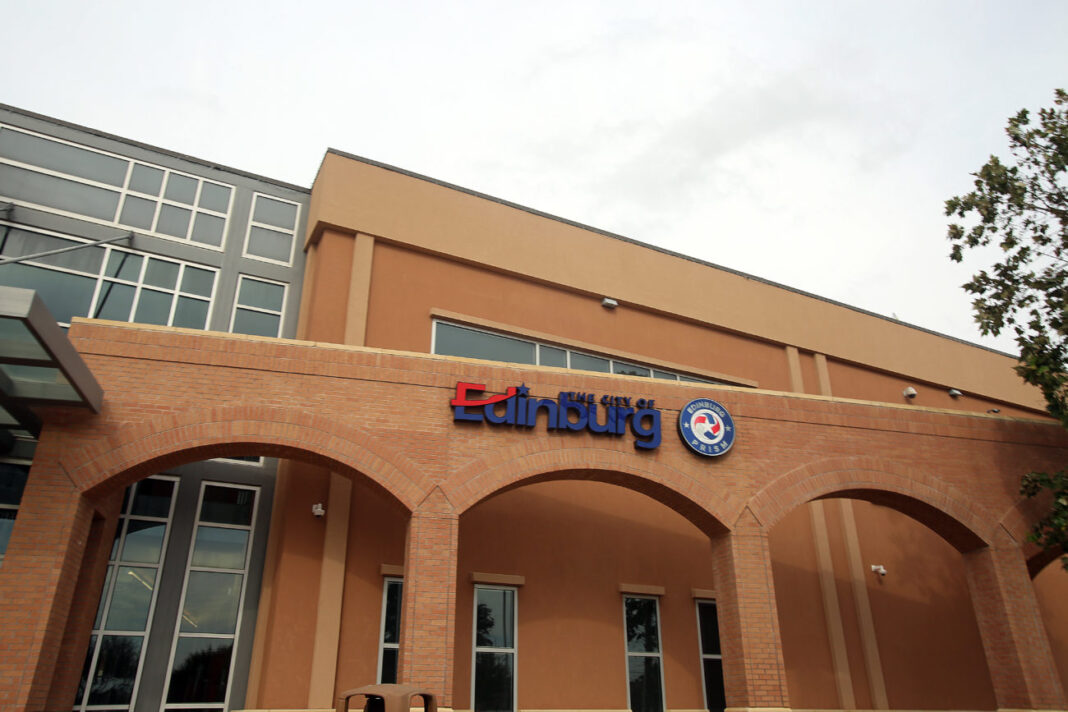EDINBURG — This week, the city council approved a $167.7 million budget for the 2021-22 fiscal year, a nearly 30% increase from the $129.4 million approved last year.
In formulating the budget for this next fiscal year, which begins on Oct. 1, City Manager Ron Garza said one of the priorities was increasing the level of service for their residents without increasing service fees.
Part of the efforts to increase services was the addition of 69 full-time employees, increasing that staff from 1,076 to 1,141 for a cost of about $2.5 million for salaries and benefits.
Among the new positions are that of an assistant city attorney and an airport director, making the city airport no longer a division of the city manager’s office but it’s own department. They’re also adding positions to the fire department and the police department.
Another of their important investments was in capital outlay such as equipment and machinery.
“We made really significant investments in forklifts and things that are going to use for drainage abatements, that was a big one,” Garza said. “Streets, potholes, drainage — those are always top concerns and those were top concerns this budget year.”
Some of those resources will be utilized for two drainage projects, each with its own dedicated team, that focus on maintaining current systems.
“Typically (with) drainage, you think about large bond projects, something like that,” Garza said. “But that’s really only one key step to that. Maintaining your current systems is equally, if not equally, probably more important than large infrastructure stuff.”
One of those projects will focus on expanding and widening every single city-maintained canal which will take about 16 months to complete and will about $200,000 for additional equipment.
Garza credited the city’s healthy revenue streams for their ability to maintain service fees at the same level.
Even during the 2019-20 fiscal year, when the COVID-19 pandemic had caused businesses to limit their services or even shut down, the city still saw an increase to their sales tax revenue.
This year, that revenue is growing at an average rate of 16%.
For the next fiscal year, Garza said the city is officially projecting a sales tax revenue growth of 3%, although they expect it to far surpass that. It is budgeted to make up 27% of their general fund revenues.
“I think from this year to next year, we could’ve easily maybe projected 10-12%,” Garza said, “but we thought that that was just way to aggressive so we are doing 3%.”
“We know that we’re being highly conservative. So one thing that we committed to that city council is that at mid-year, so if our revenue’s higher or expenditures are lower and we have funds that we can un-restrict, that is going to go completely into a road-widening program,” Garza said. “We have a lot of roads, local streets that need to be widened so, that, we kind of earmarked.”
But to ensure they could keep providing the same services to residents, Garza said the city opted to maintain their property tax rate at 0.68 per $100 of property valuation. The city council voted to adopt that rate, which was the rate adopted for the current fiscal year, during a city council meeting Tuesday.
With increased property values set by the Hidalgo County appraisal district, that same rate is expected to bring in more revenue than it did this current year and are projected to make up 35% of the city’s general fund revenue.
“We had identified early that we needed to increase our level of service so we got a lot of support from the city council to say that we were going to make significant investment in staffing and equipment, so that was in lieu of any reduction of property taxes,” Garza said as to why the city didn’t opt to lower taxes.
“They definitely inquired about it, they always do that,” Garza said of the city council, “but I think overall, citizens would, we felt collectively, that they would have a greater impact by increasing the level of service to that expectation versus a 1 or 2-cent tax drop.”
He expected that in future years, they would, again, consider a tax decrease if revenue continued to grow as strong as it has been.
But with the ongoing COVID-19 pandemic, the finanical situation is still a bit volatile. As a way to ensure the city’s resilience, Garza said they implemented measures of conservation into the budget.
Among them was a measure of the funds the city has in reserve.
The Government Finance Officers Association recommends maintaining a reserve balance of no less than 60 days. Edinburg doubled that to 120 days of operating expenditures on reserve.
Another metric they’re keeping an eye on is their debt margin.
“Debt margin, debt limits by auditing standards, should not exceed 5% of the assessed property valuation,” Garza said. “We have set a limit even much more conservative than that of 2%.”
Currently, even with the $23 million in bonds the city issued earlier this year for downtown projects, the city is at 1.8% of that debt margin.
Garza underscored the great financial position the city was in but acknowledged that as all cycles do, this one would eventually come to an end which is why he felt it was important to have those conservation measures.
“Not all cities are fortunate enough to be able to do something like that,” he said, “so starting with that is such a great position for us.”





